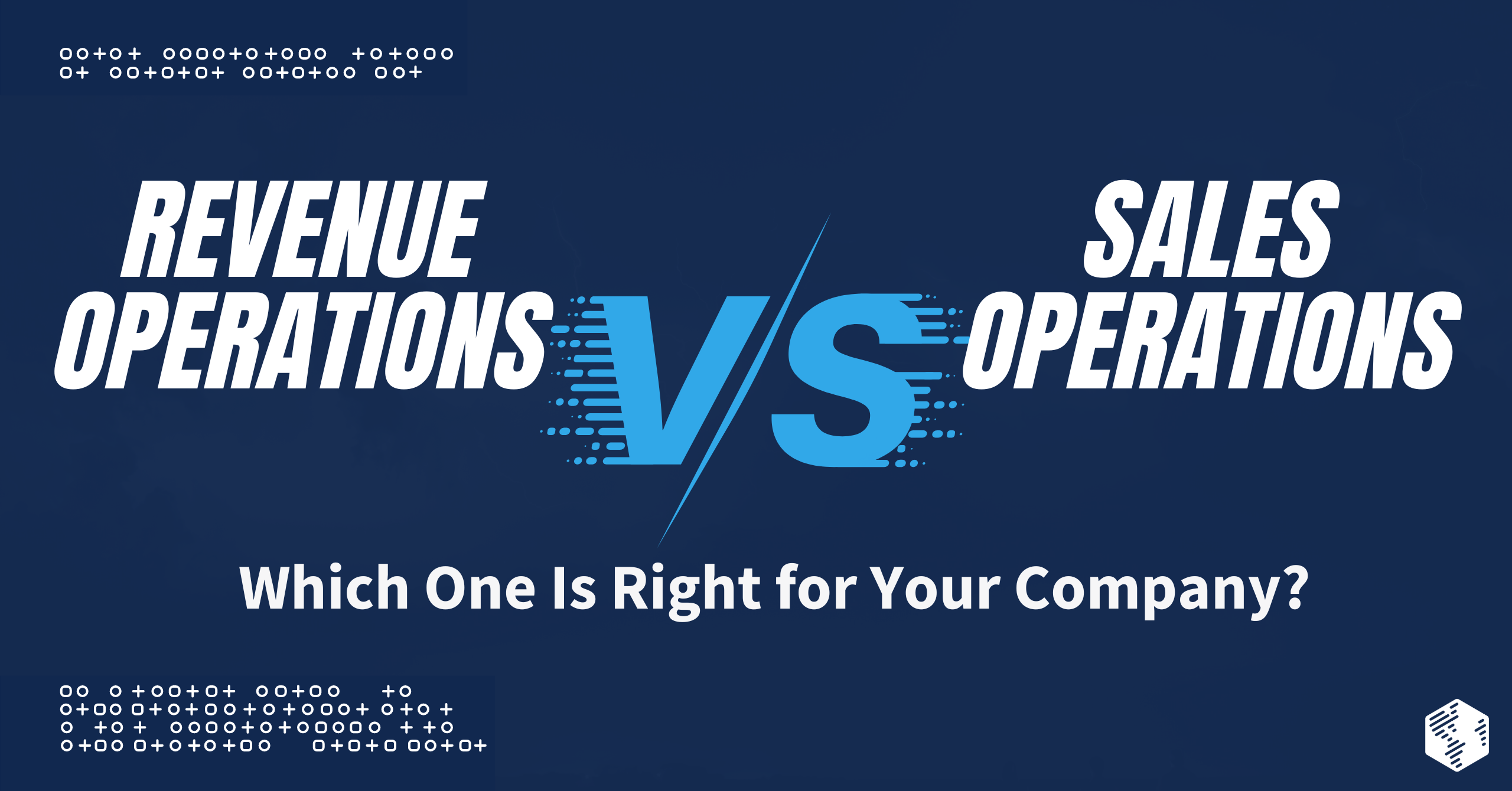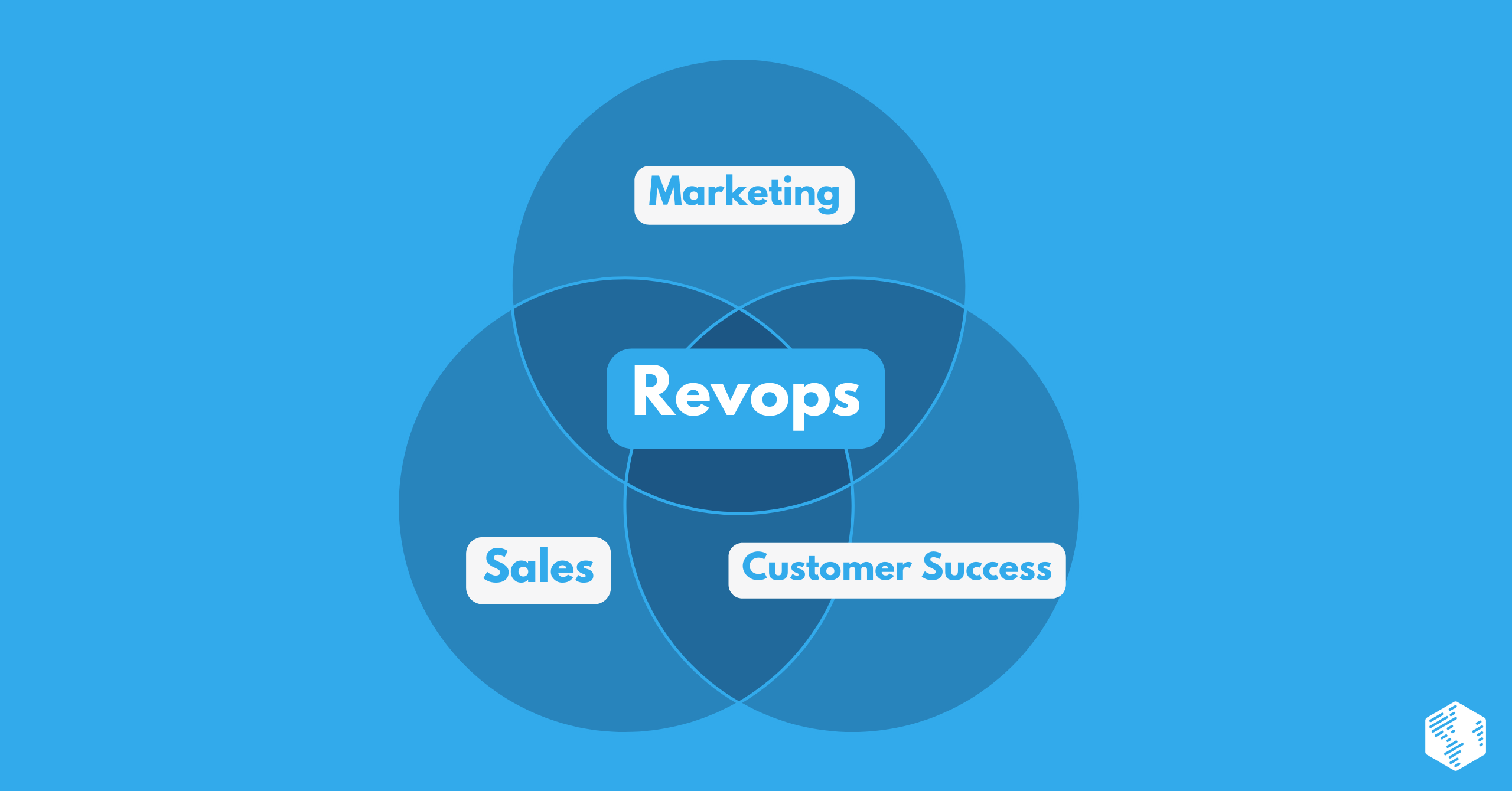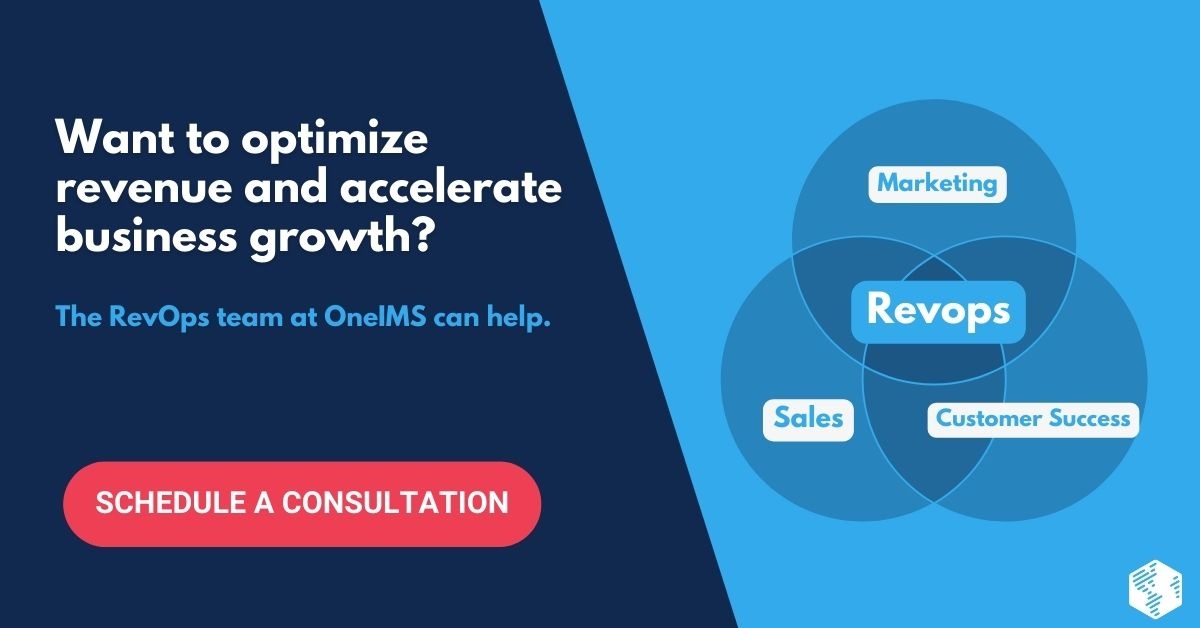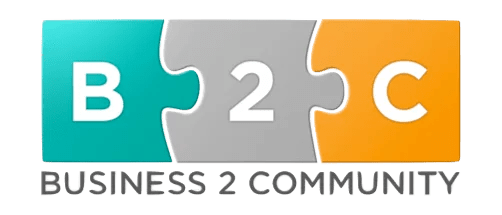Thanks to the evolution of modern technology in recent decades, consumer buying behaviors have changed. Buyers now have multiple channels to research, compare, and purchase products and services, which has transformed how consumers approach the buying process and how companies imagine the customer lifecycle.
With these changes comes an inherent adjustment in how companies make sales and how organizations assess and predict revenue. In response, an entire host of new strategies related to revenue generation have been popularized across the business-to-business (B2B) industry.
Revenue operations (RevOps) and sales operations (SalesOps) are two of the fastest-growing frameworks that address these new challenges—and both are key to the success of your business.
What Is Revenue Operations (RevOps)?
Revenue operations is an organizational methodology that aligns customer-facing departments like marketing, sales, and customer success across the customer lifecycle in an effort to unlock the full growth potential of a business. RevOps ensures these teams are communicating, collaborating, and aligning effectively.
The mission of RevOps is to fuel revenue growth by breaking down silos between departments, streamlining operations, consolidating technology, and developing long-term strategic revenue goals based on company-wide data.
Experienced RevOps teams have several goals:
- To remove departmental disconnects
- To eliminate data inaccuracies and inefficiencies
- To use customer data to find new revenue opportunities
- To uncover and restore areas of revenue leakage
- To boost conversion rates
With a RevOps framework in place, your sales, marketing, and customer success teams have the tools and support they need to create the best possible experience for every single customer.
What Is Sales Operations (SalesOps)?
Before recent shifts in consumer buying behaviors, sales operations and processes were often overlooked, disregarded, or isolated from other customer-facing departments. Then, as companies adjusted to new purchasing habits, they began to recognize the value in streamlining organizational processes and analyzing sales data.
Today, SalesOps teams are responsible for improving the performance and efficiency of the sales department. With the support of a successful SalesOps framework, sales representatives can focus on selling instead of managing data, creating a long-term strategic plan, or conducting various operational tasks.
The goals of a SalesOps team will change based on the size of the company and nature of the product or service, but they may include the following:
- To streamline data collection
- To forecast sales
- To implement incentive compensation programs for sales representatives
- To establish a sales strategy
- To monitor the current sales pipeline
- To ensure the sales department has the resources necessary to work productively
- To train sales representatives
- To reduce friction in the sales process
Overall, SalesOps exists to help sales teams achieve growth and make sales data visible across departments. Anything that falls under the category of allowing sales representatives to work more effectively can fall under the domain of sales operations.
4 Key Differences Between RevOps & SalesOps
Although there is some overlap between revenue operations and sales operations, there are also many notable differences. Understanding how these operation frameworks differ is the first step in determining which approach to operations will work best for your company.
Here are four ways that RevOps and SalesOps strategies diverge.
1. They Work with Different Departments
The purpose of SalesOps is to manage processes and systems across the sales department and to make life easier for sales representatives. RevOps goes beyond sales and coordinates multiple departments—including sales—across the entire customer lifecycle.
While the goals of SalesOps teams are limited to the sales department, RevOps establishes strategies that impact growth company-wide.
2. They Each Have a Different Impact on Customer Experience
The relationships between your sales representatives and your customers are critically important. SalesOps focuses on improving those relationships, eliminating pain points, and streamlining the buyer’s experience throughout the sales funnel.
RevOps aims to drive revenue by increasing your customer conversion rate, so its strategies improve the customer experience at every stage of the buyer’s journey—from the inbound marketing campaigns that first draw the attention of your target audience to the customer success initiatives that ensure your customers become loyal brand ambassadors for your company.
3. They Have Different Approaches to Revenue
SalesOps works with your sales representatives to reduce friction in the sales process and improve sales from existing revenue streams. RevOps takes it one step further by working with existing revenue streams as well as finding new revenue opportunities, which is made possible thanks to its work with the marketing department.
4. They Use Different Metrics
SalesOps and RevOps focus on different metrics. While SalesOps concentrates on metrics that impact sales and closing rates, RevOps looks at a wide selection of metrics—including any key performance indicators (KPIs) that revolve around revenue generation.
How Do SalesOps Teams and RevOps Teams Intersect?
If you look at the descriptions of revenue operations vs. sales operations, you’ll notice that there is obvious overlap between the two—and since sales falls under the umbrella of revenue operations, SalesOps is often considered a subset of RevOps.
Does that make SalesOps redundant? Not at all!
In fact, these two frameworks can work together and benefit from each other.
Both RevOps and SalesOps have the same goal: to drive revenue. But while sales operations is focused on the selling arm of your company, revenue operations takes a more holistic view of the entire business.
These teams may intersect in a variety of ways, but the most common in organizations that have a built out RevOps team in place is to have SalesOps as a sub-specialty of the revenue operations department. That makes it easy for the data produced by SalesOps to help RevOps forecasting efforts and, similarly, for the data RevOps collects from other departments to be used by the sales team.
They may operate like separate entities, but a RevOps team and SalesOps team can also work in harmony to encourage strong revenue growth.
Revenue Operations vs. Sales Operations: Which One Is Right for Your Company?
Sales operations and revenue operations both have their place in a successful, growing, revenue-generating organization. When you’re ready to start optimizing your business, you have to decide whether to internally hire or partner with an outside RevOps team or SalesOps team. How do you decide which path your company should take?
The most important thing to keep in mind is that every business is unique—and what works well for one company may not be the most efficient choice for yours. Take a closer look at your business goals, resources, and needs and determine whether to hire a SalesOps team, a RevOps team, or both.
When to Hire a SalesOps Team
Hiring a SalesOps team or partnering with an agency experienced in sales operations may be the right step for your company. Consider the following statements; if they sound like an accurate description of your organization, it may be time to establish a SalesOps presence at your company.
You Need Someone Dedicated to Sales Operations
Smaller or newer companies looking to drive growth may benefit from a team or leader that focuses specifically on sales operations. Since SalesOps can implement new sales processes from day one and makes sure your sales representatives are working as efficiently as possible, it may be a more affordable option for an organization that can’t dedicate resources to hiring an entire RevOps team.
Your Sales Team Spends Too Much Time Organizing, Planning, and Strategizing (Instead of Selling)
A strong sign that your company could benefit from SalesOps is when your current sales team spends too much time on paperwork and red tape when they could be making sales. A SalesOps team simplifies the entire sales process, from processing and reporting to data collecting and strategic planning. Then, your sales staff can focus on what they do best—selling your products or services.
Your Company Is in the Early Stages
If your company is in the startup phase, you may not have a marketing department or customer success team in place, so a RevOps framework isn’t necessary (yet). Starting with SalesOps will help drive revenue while giving your business time to grow. With this increased revenue, you will be able to further expand your team, eventually adding marketing and customer success professionals to your organization.
Your Sales Reps Need Extra Training
Are your sales representatives falling short? Could they use extra training to reach their full potential? SalesOps can identify team members who need assistance, plan and execute training opportunities, offer feedback, and find the right solution to maximizing productivity among the sales department.
When to Hire a RevOps Team
Is establishing a revenue operations framework and hiring a RevOps team the best choice for your organization? If any of the following statements seem familiar, you may benefit from implementing RevOps across your company.
You Are Encountering Hurdles When It Comes to Increasing Revenue
If your company has established sales, marketing, and customer success teams but is still facing challenges surrounding revenue generation, it may be time to hire a RevOps team. These experts will identify hurdles and provide solutions across the entire customer lifecycle with the goal of increasing revenue company wide.
You Have a Lack of Cross-Departmental Visibility and Communication
A lack of visibility and communication across departments is a strong sign that your company could benefit from implementing a RevOps framework. Poor communication, siloed departments, and isolated data can cause you to lose revenue. RevOps streamlines the flow of information among departments, improves internal communication, and optimizes cross-departmental efficiency.
Your Processes Are Outdated and in Need of Modernization
RevOps makes implementing and configuring tools, databases, software, and resources easier, and it also strives to streamline, automate, and modernize business operations wherever possible. If your company’s processes are outdated or if you are not taking full advantage of your existing business tools, RevOps can help.
You Can’t Tell What’s Working (and What’s Not)
When you know something is wrong with your revenue growth but can’t identify the problem, RevOps provides a bird’s eye view of the entire customer lifecycle and can provide cross-departmental solutions. Since the issues could be caused by marketing, sales, or customer success—as well as other factors like the technology you are using—RevOps, which keeps an eye on all of these organizational aspects, is the answer.
You Don’t Have a Long-Term Growth Strategy
One of the key goals of RevOps is to develop and implement a long-term growth strategy. If your company lacks a plan for increasing revenue and driving growth, a RevOps team can help you create and meet long-term revenue and growth goals.
When to Hire Both
Some companies start by adopting a SalesOps approach and then expanding to RevOps, while others invest in one but not the other. However, most companies can benefit from implementing both a sales operations and a revenue operations framework.
If you want your sales representatives to perform well, you need to establish a SalesOps presence. At the same time, if you want to grow your business, increase revenue, streamline company operations, and stay competitive, RevOps is a requirement.
The cooperation between the two is crucial. Each framework has its own benefits and serves a different role within a growing organization. Invest in both SalesOps and RevOps to maximize the revenue potential of your sales and marketing departments.
Conclusion
To improve the efficiency of your marketing, sales, and customer success teams, you need to consider adopting a RevOps framework—including a specialized SalesOps team dedicated to supporting your sales staff.
When these teams are aligned and have the same goals, your company will transform into a revenue-generating machine.
The good news? You don’t have to create and implement these strategies on your own. We can help.
At OneIMS, our team of RevOps experts is ready to help your organization adopt a revenue operations framework to streamline operations, create an effortless customer experience, function more efficiently, and become better integrated. We have the strategies, solutions, and tools you need to identify new opportunities for revenue, restructure your data management system, improve sales performance, and launch a new RevOps framework that will optimize revenue and accelerate the growth of your business.
We have a long history of working with companies in a variety of industries to develop innovative and data-driven marketing solutions, and we pride ourselves on producing measurable and sustainable results.
But you don’t have to take our word for it. View testimonials from our clients and read our blog to get an idea of our training, experience, and track record of success.
Are you ready to take the next step in revolutionizing your revenue operations framework? Schedule a consultation with us today to get started.




































